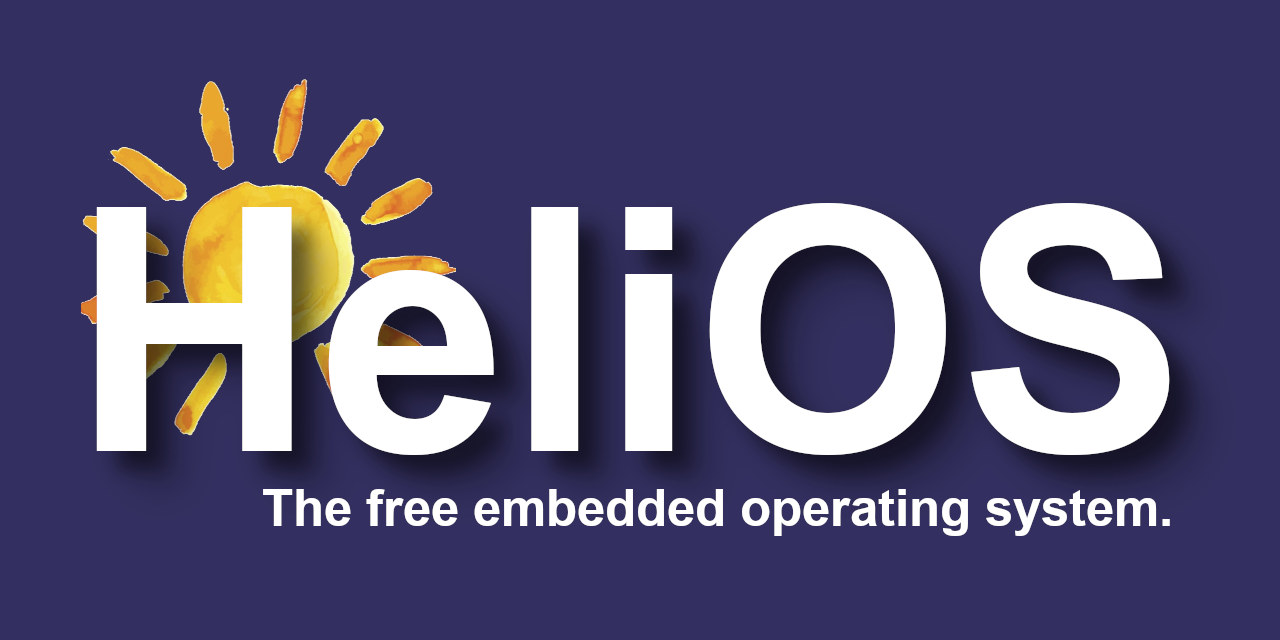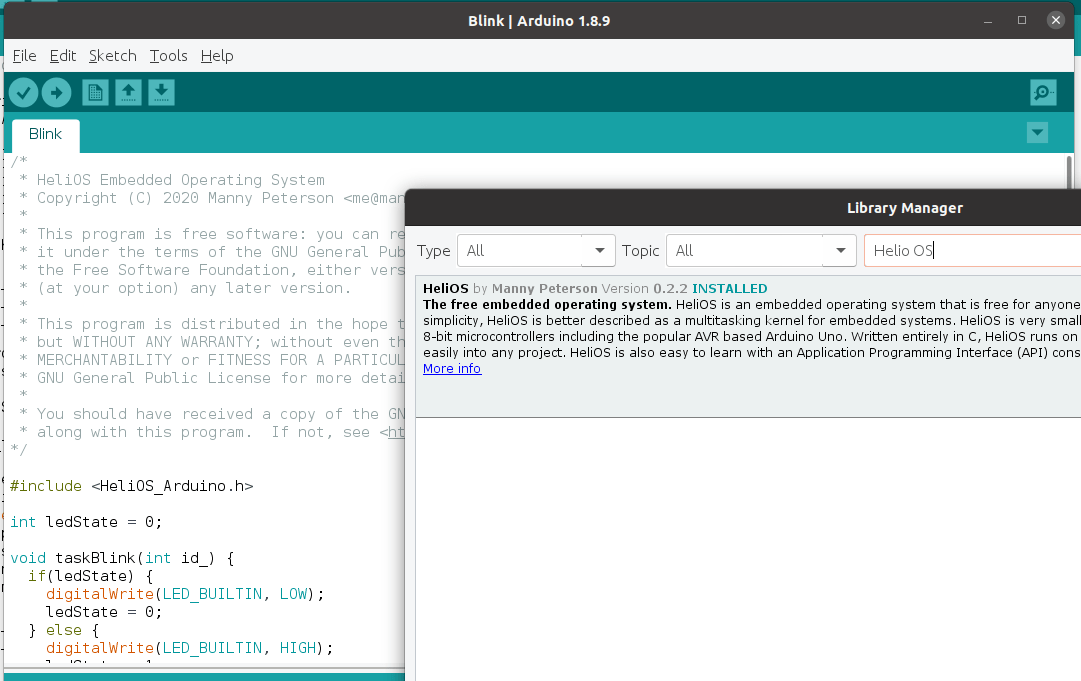Mannie Peterson (aka FellFromTree) has developed an embedded operating system called HeliOS that’s designed specifically for 8-bit and 32-bit Arduino boards, and can easily be used from the Arduino IDE.
HeliOS is said to have only 21 function calls and implements cooperative and event-driven multitasking, task notification/messaging, timers, and memory management. It’s a non-preemptive multitasking kernel so you won’t have to deal with mutexes.
The developer explains how scheduling works with HeliOS:
HeliOS uses a run-time balanced strategy which ensures tasks with shorter run-times are prioritized over tasks with longer run-times. This ensures all running tasks receive approximately equal total run-time without using context switching. The other multitasking option available in HeliOS is event driven multitasking, which uses the wait/notify and timer interfaces. Mixing cooperative and event driven tasks in HeliOS is not a problem.
To give it a try, simply open the Arduino IDE Library Manager, search for “HeliOS” and click install it. There will be some example including a blink sketch using cooperative multitasking:
|
1 2 3 4 5 6 7 8 9 10 11 12 13 14 15 16 17 18 19 20 21 22 23 24 25 26 27 |
#include <HeliOS_Arduino.h> int ledState = 0; void taskBlink(int id_) { if(ledState) { digitalWrite(LED_BUILTIN, LOW); ledState = 0; } else { digitalWrite(LED_BUILTIN, HIGH); ledState = 1; } } void setup() { xHeliOSSetup(); pinMode(LED_BUILTIN, OUTPUT); int id = xTaskAdd("TASKBLINK", &taskBlink); xTaskWait(id); xTaskSetTimer(id, 1000000); } void loop() { xHeliOSLoop(); } |
While HeliOS has been designed for Arduino AVR, SAM, and SAMD architectures, it should be possible, and fairly easy, to port it to other microcontrollers with Arduino support. The operating system, which the developer says is better described as a “multitasking kernel for embedded systems”, is meant to be a lightweight as possible, and for instance, has a much lower footprint than FreeRTOS.
You’ll find the source code and documentation on Github and the Arduino Project Hub.

Jean-Luc started CNX Software in 2010 as a part-time endeavor, before quitting his job as a software engineering manager, and starting to write daily news, and reviews full time later in 2011.
Support CNX Software! Donate via cryptocurrencies, become a Patron on Patreon, or purchase goods on Amazon or Aliexpress






